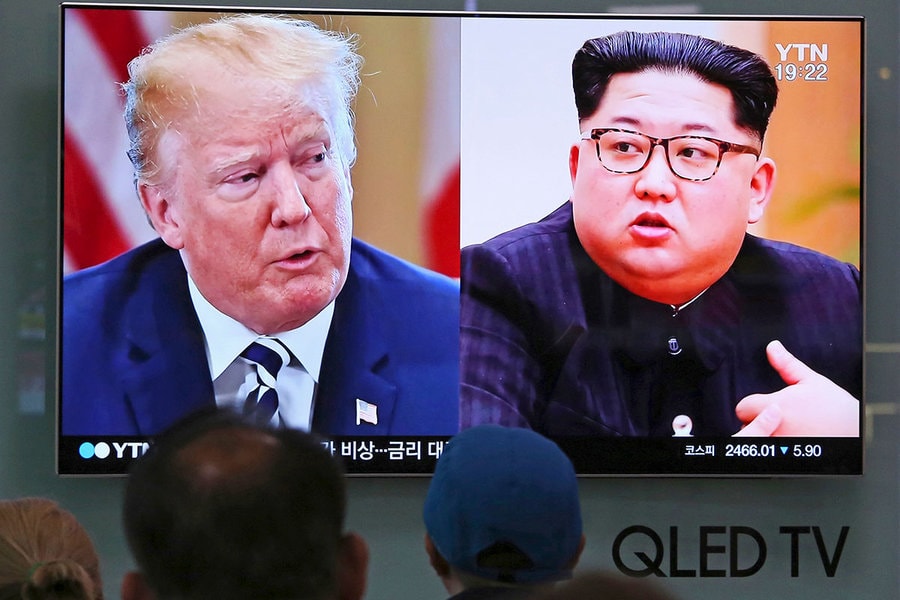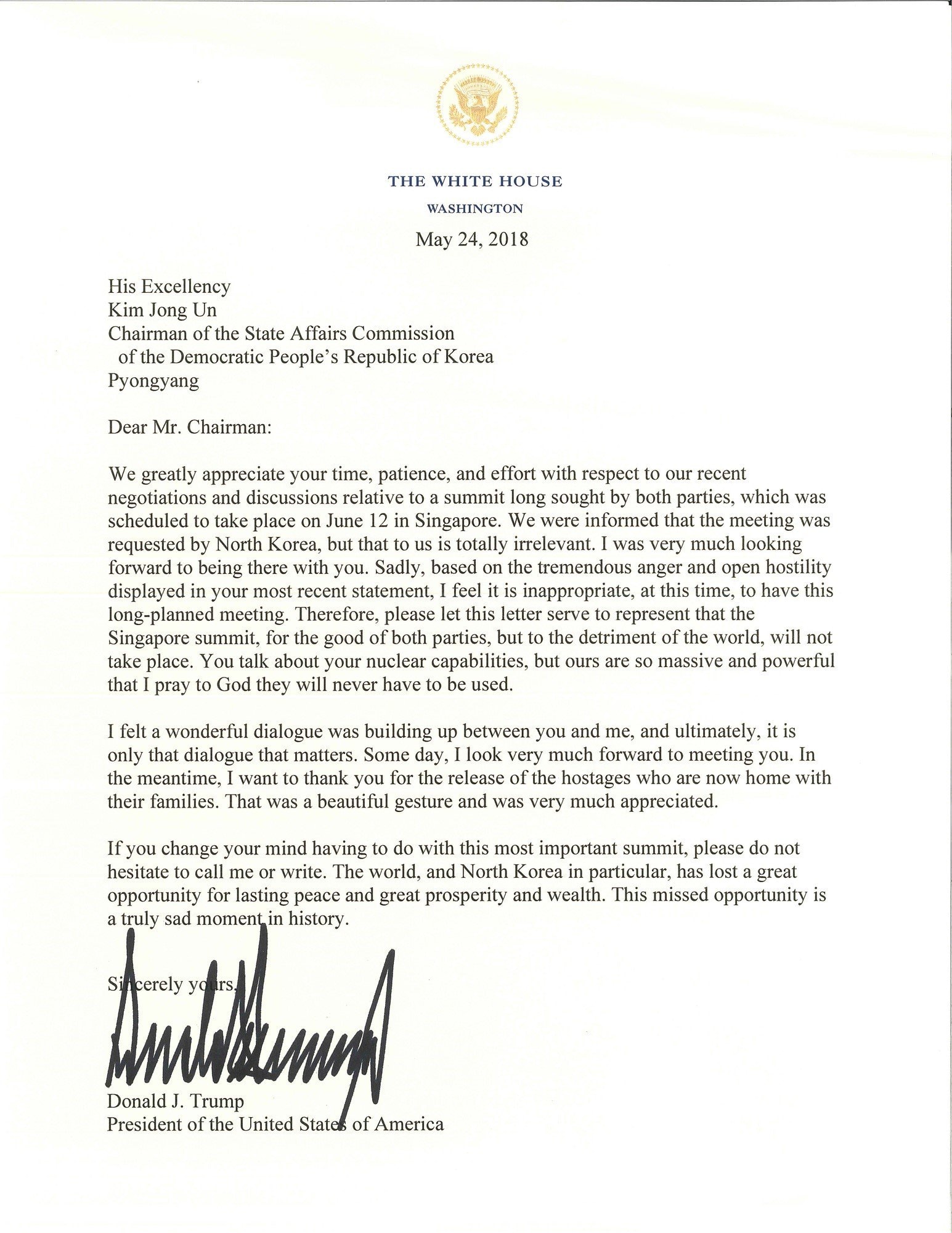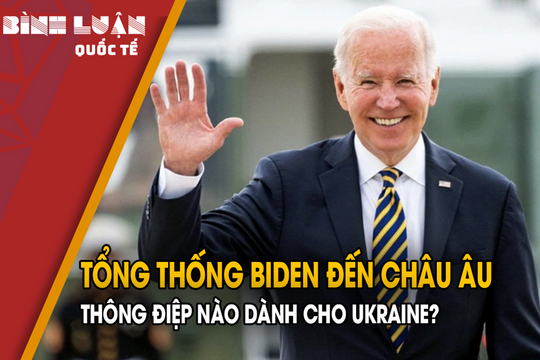3 big questions when the US-North Korea summit was canceled in Trump's hands
(Baonghean.vn) - According to CSMonitor, US President Donald Trump's sudden decision to cancel the highly anticipated meeting with North Korean leader Kim Jong-un was both unexpected and completely predictable - and raised questions about the upcoming situation.
 |
| People watch news about US President Donald Trump and North Korean leader Kim Jong-un at Seoul Railway Station, South Korea, on May 24. North Korea destroyed its nuclear test site on Thursday, with a series of explosions over several hours in front of foreign reporters. Photo: AP |
It must be reaffirmed that Mr. Trump's sudden decision was both surprising and predictable.
The reason why the withdrawal from the meeting was so surprising is because it seems that Mr. Trump had invested a lot in this event, right from the moment he staged the dramatic announcement of the meeting by South Korean officials visiting the White House. Indeed, the US President often said that the meeting could be a failure. But he also showed it by "honoring" it as a major event that his predecessors could not do. Most recently, on May 10, when announcing that the meeting would be held in Singapore, Trump posted on Twitter: "We will try to make it a very special moment for World Peace!"
But the collapse of the summit was predictable, given how quickly things moved. High-level meetings between world leaders are highly orchestrated events, with agendas and logistics worked out in advance. In this case, Trump hastily accepted North Korea’s request for a meeting, and then agreed to a “face-to-face” summit within weeks. As it became clear that Pyongyang and the White House had vastly different understandings of what “denuclearization” of North Korea meant, the prospects for the meeting faded.
 |
| North Korean state media said on May 25 that the demolition of the country's only known nuclear test site demonstrated its "peace-loving" efforts and pursuit of a "complete cessation" of nuclear tests. Photo: CNN |
As a result, public attention is now focused on a few important questions:
Will either side give in?
There is a view that neither side has made any concessions, as negotiations have yet to take place – so the US and North Korea are still “stuck” in their often-fraught relationship. If anything, North Korea has made some concessions here. After all, they did release three American prisoners as a token of their affection.
“It was a beautiful gesture and very much appreciated,” Trump wrote in a letter to Kim canceling the June 12 summit.
Another way to look at it is that Kim got what he wanted. By agreeing to this one-on-one meeting, Trump treated him as an equal on the world stage. Kim’s nuclear arsenal—a “treasured sword,” in North Korean parlance—forced the US to the negotiating table. He met with South Korean President Moon Jae-in in an emotional summit that seemed like a reunion. He traveled to China for consultations with officials from North Korea’s most powerful friend. The very prospect of a summit with the US seemed to ease North Korea’s isolation. Will that now be reversed?
 |
| The letter Mr. Trump sent to leader Kim Jong-un, emphasizing that now is an "inappropriate" time to hold the long-planned summit. This move has raised concerns from many countries, especially from South Korea. Photo: Twitter |
How does the cancellation of the summit affect US relations with other countries?
If the Trump-Kim summit had a midwife, it was South Korea. President Moon was elected as a peace candidate and has worked tirelessly to bring the two sides together. The handshake and crossing the border with Kim was an emotional one in Moon’s homeland. For him, the cancellation of the June 12 summit was certainly a difficult development.
North Korea could now use the situation to try to drive a wedge between South Korea and the United States. That has been a long-standing strategic goal of Pyongyang. After all, South Korea cannot enthusiastically support Trump’s move. At the same time, Trump can blame South Korea for exaggerating the chances that North Korea might actually put its nuclear technologies on the negotiating table.
Then there is China. Trump has reined in his confrontational trade policy with China, in part to try to persuade his Chinese counterparts to push North Korea toward disarmament talks. If that fails, will US tariffs on China be next?
What happens next?
 |
| South Korea's Foreign Ministry said on May 25 that US Secretary of State Mike Pompeo affirmed that Washington remains committed to dialogue with North Korea, despite President Donald Trump's decision to cancel summit talks with Pyongyang's leader next month. Photo: Yonhap |
Trump’s letter to Kim asserted that the meeting was canceled because of the “tremendous anger and open hostility” caused by North Korea’s recent statements about US Vice President Mike Pence and the prospects for denuclearization. At the same time, the letter seemed vague about what might happen. “If you change your mind regarding this most important summit, please do not hesitate to call or write,” Trump wrote.
Perhaps Kim will tone down the North Korean rhetoric, and a rescheduled meeting will follow later this year. But if it does, the core issue here has been made clear. The Trump administration continues to talk about denuclearization as something that needs to be comprehensive, and done quickly. North Korea rejects that approach. Meanwhile, Trump has returned to thinly veiled threats.
Our military is “ready if needed,” he said in a statement from the White House on May 24. “Hopefully positive things will unfold regarding the future of North Korea — but if they don’t, we are more ready than ever.”

.png)







